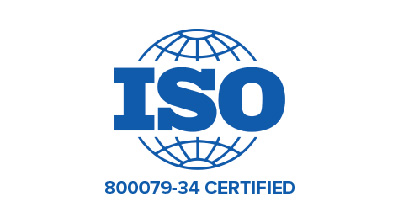When most people think of nurses, the image that comes to mind is often a hospital setting, whether it’s scrubs, bedside care, maybe a comforting hand during a tough moment. And while bedside nursing remains at the heart of the profession, today’s nurses are contributing far beyond hospital walls.
As we continue to celebrate National Nursing Week, it’s time to spotlight the evolving roles nurses are taking on across healthcare, and the growing influence they have in places many people might not expect.
Advanced Practice Nursing: Frontline Providers, Full Scope of Care
One of the most visible shifts in nursing has been the rise of Advanced Practice Registered Nurses (APRNs). These professionals—nurse practitioners, nurse midwives, nurse anesthetists, and clinical nurse specialists—are leading care delivery in clinics, hospitals, and communities across the country.
Nurse practitioners (NPs), for example, serve as primary care providers for millions of Americans, diagnosing and treating conditions, prescribing medications, and emphasizing prevention and education. In nearly half the U.S., they have full practice authority, which means many are running independent practices, often in areas where physicians are scarce.
“I became a nurse practitioner to offer comprehensive care with a human touch,” says Sarah Martinez, DNP, who runs a family clinic in rural New Mexico. “My patients value the time I spend listening and educating—those are the strengths nursing has always brought to the table.”
Certified Nurse Midwives provide care across the lifespan, including prenatal and childbirth services. CRNAs safely deliver anesthesia to millions annually, particularly in rural areas. Clinical Nurse Specialists lead innovation and evidence-based practice in specialized fields, helping elevate care standards across entire systems.
Leadership and Administration: Nurses in the C-Suite
Nurses are increasingly stepping into executive leadership. Chief Nursing Officers, nurse administrators, and policy influencers now shape healthcare strategy at the highest levels.
“Nurses see healthcare from the ground up,” says Robert Chen, DNP, MBA, Chief Nursing Officer at Metropolitan Medical Center. “We know what matters to patients and what challenges teams face—and we bring that insight into every strategic decision.”
From unit-level management to hospital boards, nurses are making sure that patient care stays at the center of every conversation. Their frontline experience helps bridge the gap between clinical realities and operational planning.
Educators and Researchers: Advancing Knowledge and Practice
As the science of nursing evolves, so too does its academic foundation. Nurse educators are shaping future generations, preparing students to meet complex healthcare challenges with skill and compassion.
“Teaching nursing is about staying ahead of change,” says Teresa Washington, PhD, RN. “We’re preparing students for a future that hasn’t fully arrived yet.”
Meanwhile, nurse researchers are driving improvements in care through rigorous studies, whether they’re working to reduce hospital-acquired infections, improve pain management, or advance health equity. Clinical educators play a vital role too, ensuring working nurses stay current as technology and practice standards shift.
Public and Community Health: Prevention at the Population Level
Some of the most powerful nursing work happens far from hospitals. Community and public health nurses tackle systemic health challenges, often before illness ever reaches the ER.
School nurses manage chronic conditions, provide mental health support, and guide entire communities through public health crises. Public health nurses develop vaccination programs, maternal health initiatives, and education campaigns tailored to specific populations.
“Public health nursing lets me tackle root causes,” says David Park, MPH, RN. “When we improve access to housing or nutrition, we’re preventing illness on a much larger scale.”
Innovative and Emerging Roles: The New Frontiers of Nursing
Nursing expertise is now shaping fields once considered far outside traditional care settings. Informatics nurses bridge clinical care and IT, helping to design user-friendly systems that actually work for patients and providers. Legal nurse consultants bring clarity to complex medical cases. Corporate health nurses lead wellness programs that improve employee health and reduce costs.
Some nurses are launching their own ventures by offering patient advocacy services, creating health tech startups, or opening specialized care agencies. What unites all these paths is a commitment to solving problems with a patient-centered mindset.
Profiles in Possibility
Elena Rodriguez, PhD, RN, didn’t see herself landing in Silicon Valley. But today, as Chief Clinical Officer for a healthcare tech startup, she ensures that innovation stays grounded in patient care. “I speak both languages—tech and clinical—and that helps us build tools that actually support nurses and doctors.”
Michael Johnson, MSN, RN, moved from the ER to disaster response. “Emergency nursing taught me how to think fast under pressure. Now I apply that in crisis zones across the globe.”
And for Aisha Williams, BSN, RN, the path led to diversity and inclusion work. “We’ve seen how disparities affect care. Nurses understand what equity looks like in practice, and we can lead the charge for change.”
A Profession Evolving with Purpose
Nursing today is as diverse as the people it serves. From the bedside to the boardroom, the classroom to the community, nurses are leading, educating, innovating, and advocating in powerful new ways.
Yes, the bedside remains the soul of nursing, but the reach of this profession now stretches across every level of care. By bringing clinical knowledge, empathy, and systems thinking into spaces where decisions are made, nurses are helping to shape a healthier, more human-centered future.
HID and GuardRFID – part of HID are proud to support Nurses Week 2025
This year’s theme, “The Power of Nurses,” perfectly embodies the irreplaceable value nurses bring to our healthcare systems.
By focusing on the health and wellbeing of nurses, the theme highlights the essential role a strong, supported nursing workforce plays in improving health systems, strengthening economies, and ensuring better outcomes for communities around the world. You can read more here.

